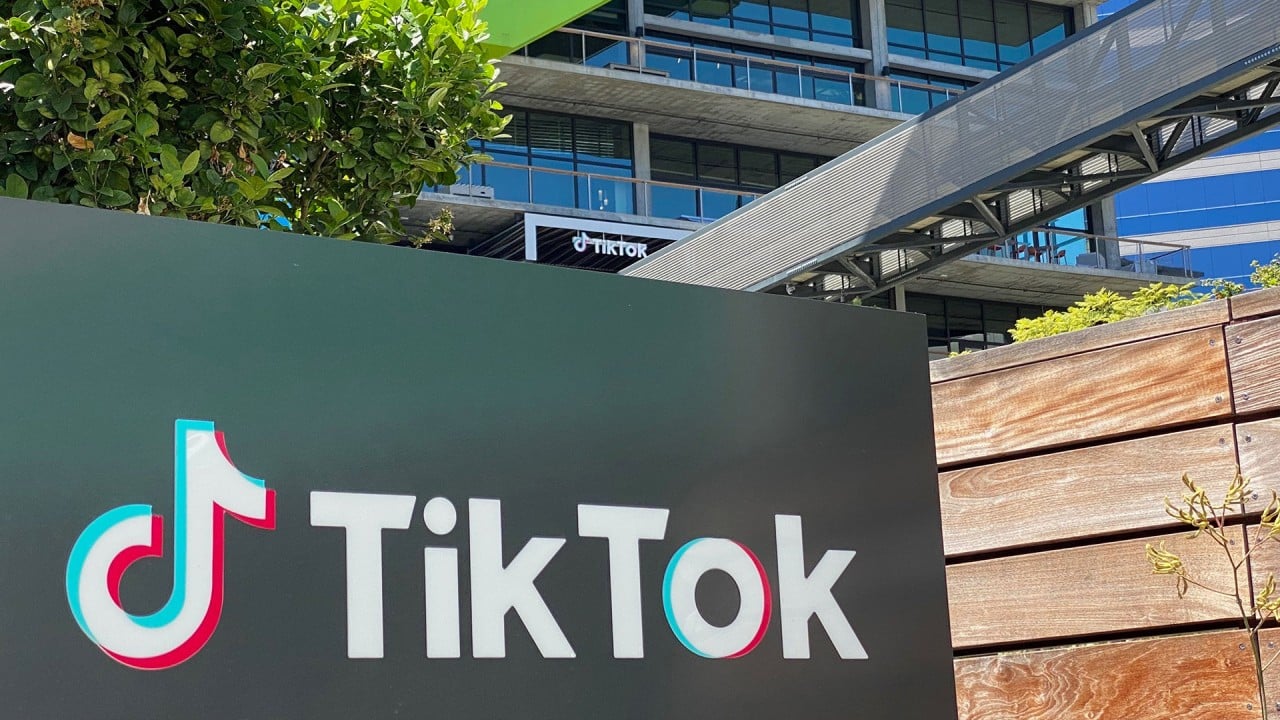
Why are Google and Amazon investing in Indonesia’s tech unicorns? Because Alibaba and Tencent are too
- The US tech giants have made inroads into the Southeast Asian nation this year, joining companies from China in vying for the lucrative regional market
- The American firms are seen as cautious, mostly targeting heavily funded tech companies, while Chinese investors are viewed as more willing to take risks
“Indonesia, specifically, is the fourth-largest internet population in the world, has a high number of exciting tech start-ups and is the largest market by population,” said Pinn Lawjindakul, vice-president at Lightspeed Venture Partners in Singapore.
Singapore digital economy slumps amid Southeast Asian boom
“These investments in Indonesia signal the importance of the country and the wider region in the eyes of these global tech giants. This vote of confidence will have a positive ripple effect. More international companies will be driven to follow suit and invest here, which will encourage more innovation and the creation of more start-ups,” she said.
“It is a very exciting time for founders and investors in Indonesia and the Southeast Asia region as a whole.”

06:02
Global expansion of TikTok and other Chinese tech companies is likely, only not in the West
Microsoft has also partnered with an Indonesian unicorn, announcing an undisclosed investment this month in e-commerce firm Bukalapak, which put the company’s valuation at US$2.5 billion to US$3 billion. Bukalapak’s existing investors include China’s Ant Group, which holds a 19.4 per cent share stake in the company. Microsoft is also an investor in Singapore’s ride-hailing and food-delivery behemoth Grab, which rates Indonesia as its major market.
In June, Facebook and PayPal invested an undisclosed amount in Indonesia’s Gojek, Grab’s arch rival. Gojek, which also counts Google as an investor, in a statement said the investment would mainly be used to strengthen GoPay, its payments and financial arm, as it seeks to expand its digital payment business in the cash-reliant region. The 10-year-old Indonesian company is valued at US$10 billion, and has prominent backers such as China’s Tencent and Temasek.
Can Gojek navigate crucial transition as its founder exits?
The Gojek investment is Facebook’s first real foray into investing in Indonesia, where it will try to introduce mobile payment services through its ubiquitous WhatsApp messaging application.
Seattle-based tech mammoth Amazon has also set its sights on operating in Indonesia, with West Java Governor Ridwan Kamil announcing on November 16 that the company will invest around US$2 billion to build a data centre for its cloud computing service in the province.
While details on the deal were vague, the investment is expected to pave the way for Amazon to set up an operation in Indonesia, where the US$32 billion domestic e-commerce market is now dominated by local and regional firms.
Data from Singapore-based VC firm Cento Ventures shows that US$5.6 billion was invested in tech companies in Southeast Asia in more than 300 deals in the first half of this year, with 74 per cent of the capital invested in Indonesian start-ups – mainly in leading tech companies such as Gojek and Grab.

CHANGE IN TACK
US tech giants have rewritten their playbooks when its comes to their operating strategy in Southeast Asia.
San Francisco-based ride-hailing app Uber learned the hard way that the strategy of offering services in Southeast Asia in the same manner it offered them in the US might not fully work in this vast and complex region. Uber, which entered the region via Singapore in 2013, soon found itself in a losing battle for market share with Grab.
In 2018, Uber agreed to sell its ride-hailing and food delivery business in Southeast Asia to Grab in exchange for a 27.5 per cent of Grab’s stakes, in an acquisition facilitated by the companies’ common investor, SoftBank. At that time, Uber was doing little to adapt its platform to Southeast Asian users and was playing catch up with competitors such as Gojek and Grab.
Uber was, for example, late in introducing cash payments and offering a motorcycle-taxi hailing feature in a region where road congestion is common and two-wheelers are the transport mode of choice. As a result, the company was bleeding money just to stay afloat in Southeast Asia, where it had a presence in Indonesia, Malaysia, Singapore, the Philippines, Thailand, Vietnam, Cambodia and Myanmar.
In the wake of such failures, the US tech firms’ investment strategy has seemingly shifted now to partnering with local firms, who understand their respective markets better than foreign firms. This was a tack first taken by Chinese tech companies, who realised first the importance of investing in local firms to ensure a long-term presence in the region.
The American companies, however, remain cautious, and are mostly investing in heavily funded tech companies rather than in fledgling start-ups.
The Chinese companies are more experienced at building for emerging market consumers
“They’re really, really conservative, they’re not making bets like we’ve seen Tencent, Alibaba doing in investing in start-ups,” said Vinnie Lauria, founding partner at Singapore-based Golden Gate Ventures. “When Alibaba came into Tokopedia, Tencent came into Gojek – that’s way earlier before US companies. US companies are ironically more risk-averse.”
Chinese and American investors also offer different types of capabilities to their Southeast Asian partners, although analysts said local investment partners would benefit from either approach.
“The Chinese companies are more experienced at building for emerging market consumers, the Western players are better at building company culture, brands and global values,” said Lawjindakul, of Lightspeed Venture Partners.
While Big Tech’s investments in Indonesia largely follow their “Next Billion Users” campaigns – which, in Asia, were mainly focused on India until last year – investors also pointed to prolonged tensions between the US and China, as well as New Delhi and Beijing, as one of the reasons for the pivot from India to Southeast Asia.

Next Billion Users – an initiative launched by Google in 2015 after Sundar Pichai became the company’s chief executive – aims to bring internet connections to billions of people in developing nations. Facebook started a similar effort in 2010, when it began partnering with telecommunications providers in low-income countries to offer a number of apps, including a streamlined version of its social media app, to cheap phones with low-processing power.
As the world’s second most populous nation, India is a clear choice as a starting place in Asia for such initiatives. Only about 40 per cent of the country’s 1.2 billion people are connected as of last year, according to data from the Internet and Mobile Association of India and Nielsen. After India, Indonesia – the world’s fourth-largest country by population – is next in line for US tech giants’ investments.
Online food prices drop in Indonesia as Gojek fights Grab
ByteDance reportedly plans to invest billions of dollars and recruit more than 200 employees in Singapore over the next three years. It has also expedited the purchase of cloud-computing servers in Singapore to back up its operations in the city state, which will host the company’s headquarters to prop up expansion throughout Southeast Asia.
While the battle is far from over, some argue that Chinese tech firms have the advantage in being the first to invest in the region, penetrating Southeast Asia through investments and internet-based initiatives, such as mobile payments, that have allowed them a more sustainable leadership base over their American counterparts.
“That battleground is like a 10-year-long battle, so there’s no clear winner, but I would say China has definitely demonstrated a better adaptability” and was being aggressive in taking on hard-charging US rivals, Lauria said.

